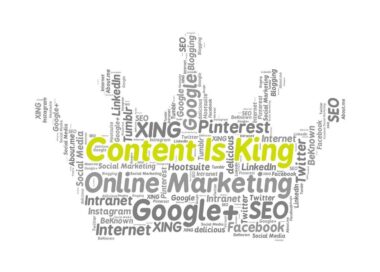Facebook Algorithm Favoring Political Content: User Engagement Analysis
Social media platforms have a significant influence on how information is disseminated and consumed. Facebook, as one of the largest social media networks globally, has undergone algorithm changes that prioritize political content, which has sparked considerable user engagement. These adjustments have been part of Facebook’s effort to make its platform a vital resource for political discussion and engagement, particularly during elections and significant political events. Users are often presented with political posts, including articles, videos, and memes, that aim to provoke discussions. The extent to which users engage with this content can provide insights into their preferences and sentiments regarding political matters. Studies show that political posts often garner more likes, shares, and comments than typical personal updates, indicating a definite preference for political engagement in users’ social media interactions. However, this phenomenon raises concerns about echo chambers and the role of algorithms in shaping users’ perceptions. With increasing scrutiny over the impact of social media on democracy, understanding these algorithms is crucial for evaluating their societal implications.
The evolution of Facebook’s algorithm has systematically influenced the visibility of political content. Originally, Facebook focused on creating an experience that emphasized personal connections, prioritizing posts from friends and family. However, as political discourse began to permeate the platform, the algorithm adapted to enhance user engagement by highlighting political articles and posts. This change stems from Facebook’s goal to capture user attention, thus increasing time spent on the platform, ultimately generating more advertising revenue. The metrics indicating user engagement have become a guiding force behind these algorithm changes, suggesting that content generating comments and shares is elevated in visibility. As a result, political pages and influencers have utilized these algorithmic preferences to strategically amplify their messages. This scenario leads to the question of content responsibility, as information may not always be accurate or unbiased. This effect aggravates issues related to misinformation spreading and the potential consequences for political polarization among users, setting a daunting challenge for the platform in striving to balance user engagement with ethical content dissemination.
Implications of Algorithmic Prioritization
The prioritization of political content within Facebook’s algorithm isn’t without its consequences for users and society. Some users benefit from increased access to diverse political viewpoints, allowing for broader discourse and awareness of various issues. However, this curated experience often leads to the formation of echo chambers, where individuals primarily engage with posts that reinforce their existing beliefs. The resultant environment can skew users’ perceptions, making them more susceptible to misinformation. Algorithmically driven content can distort the representation of political discussions, pushing sensationalist narratives to the forefront and sidelining moderate voices that might provide balanced insights. This kind of dynamic may contribute to growing distrust in media and established institutions, as users can increasingly interpret their online experiences as reflective of reality. Additionally, political polarization can be exacerbated through the selective exposure to rhetorical strategies that elicit emotional responses. Consequently, recognizing the algorithm’s influence is vital for navigating online political discourse and fostering critical thinking skills among users to evaluate the credibility of shared information effectively.
User Engagement Trends
Facebook’s algorithmic changes have led to noticeable shifts in user engagement trends over recent years, particularly surrounding political content. Users often demonstrate increased interaction with posts deemed controversial or polarizing. Analyzing engagement metrics can reveal user preferences in relation to political topics. Much political content is shared during times of heightened political activity, such as election seasons or significant political announcements, which correlates with higher engagement rates. This uptick can lead to an ongoing cycle where algorithmically promoted content further shapes user activities and habits. Moreover, Facebook’s inclination to prioritize emotionally charged content has resulted in political posts that invoke strong feelings, which are naturally more engaging. This emotional engagement can contribute to the physical sharing of content beyond the platform, extending reach to offline environments where discussions arise among communities. However, such trends can also entice platform users into conflicts or confrontative discussions. Thus, understanding these engagement trends is crucial for enabling discussions grounded in constructive dialogue while mitigating hostility that arises from miscommunications.
Further analysis of the relationship between Facebook’s algorithm and user engagement surrounding political content unveils significant implications for political campaigns. Politicians and organizations operating within the digital sphere have recognized the importance of tailoring their messages to align with algorithmic preferences. Campaign strategies increasingly leverage engaging formats, including livestreams and interactive posts, optimizing their content to reach wider audiences. This new landscape necessitates a shift in how political entities compile their communications, focusing on evoking emotional reactions and fostering interactivity among users. Visibility can be profoundly impacted, as success is determined by the frequency of shares and comments rather than solely on the merits of the message itself. Consequently, this shift emphasizes the importance of developing compelling narratives that resonate with the audience effectively. Nevertheless, while innovative tactics enhance engagement, they also run the risk of oversimplifying complex political issues. As such, dialogues about the ethical responsibilities associated with campaign strategies and the broader implications of algorithm-driven political discussions become increasingly critical for fostering an informed citizenry.
Challenges Faced by Algorithms
Despite the apparent advantages that algorithmic prioritization of political content may offer in terms of user engagement, considerable challenges persist. Facebook and other platforms face ongoing scrutiny for facilitating the spread of misinformation, where algorithmic bias impacts the credibility of information shared. Users may find themselves confronted with polarized perspectives that do not accurately represent the entire political landscape. Additionally, a lack of transparency concerning how algorithms weigh certain factors can lead to disillusionment among users, creating friction between the platform and its audience. Trust in social media companies is further strained when users feel manipulated by content curation that prioritizes engagement metrics over impartiality. Understanding the challenges arising from these algorithms is integral to addressing accountability and transparency while also fostering cooperation among users in combating misinformation. As platforms continue to evolve, developing enhanced approaches to curbing harmful effects related to algorithm-driven engagement will be vital in ensuring that users can connect thoughtfully with diverse perspectives in an increasingly complex political climate.
In conclusion, the Facebook algorithm’s prioritization of political content has transformed the landscape of social media engagement. By favoring politically charged posts, the platform has reshaped user interaction and perceptions surrounding political discourse. While this approach may facilitate increased dialogue and engagement, it also poses significant risks, fostering echo chambers and enabling the spread of misinformation. Understanding these dynamics forces essential questions regarding the ethical implications of algorithm design and its impact on societal discourse. Furthermore, as users navigate spaces shaped by algorithms, they must cultivate critical thinking skills to ensure they engage with information responsibly. Ultimately, recognizing and addressing the complexities involved in social media algorithms is crucial for fostering a healthy democratic environment while minimizing potential harms that arise from algorithmically driven content dynamics. The implications of these changes extend beyond individual users, influencing broader societal perceptions and engagement with political discussions. As algorithms continue to evolve, it is paramount that platforms take responsible steps to safeguard the integrity of political dialogue, ensuring users can engage with the diverse spectrum of political thought in a meaningful way.
The ongoing adjustments to Facebook’s algorithm highlight the intricate relationship between technology and political engagement. As the platform continues to respond to user behavior and societal changes, the challenge of balancing engagement with accuracy and responsibility remains. The effects of this algorithm could serve as an illuminating case study for other platforms navigating similar issues surrounding content engagement. By examining the way Facebook emphasizes political posts, other social media networks can gain valuable insights into user behavior and engagement trends. Such awareness can inform their content strategies, helping to promote healthy discourse and trust among users. Additionally, researchers and policymakers can examine these changes to develop regulations that foster integrity on social media. Aiming for transparency and encouraging platforms to prioritize accurate information without compromising user engagement can mark a crucial step toward enhancing internet governance and democracy. As Algorithm designs are put under scrutiny, it becomes vital for the industry to collaborate with academia and civil society to promote ethical practices. This evolving landscape warrants a deeper exploration into how social media can successfully balance user engagement, responsible content sharing, and the preservation of democratic processes through effective algorithmic governance.





